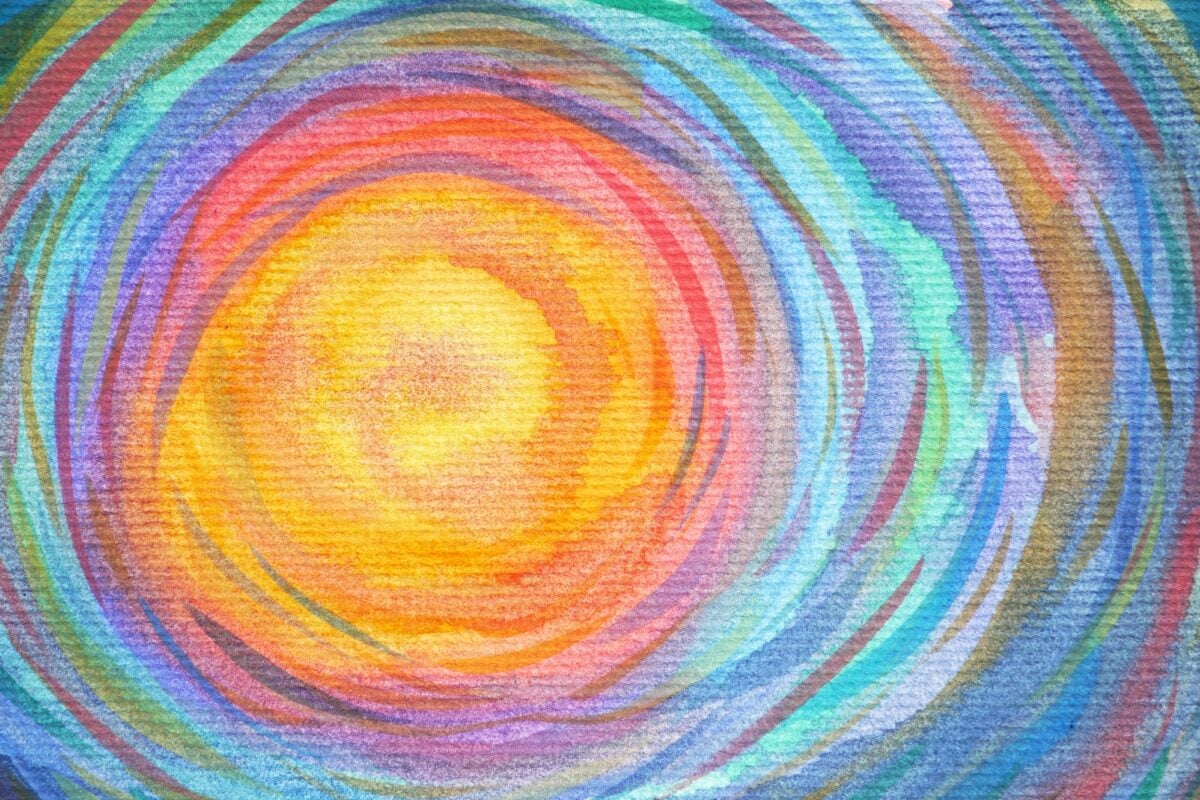Marriage Therapy for Infidelity: Can Couples Heal After Betrayal?
Infidelity can devastate a marriage, but healing is possible. Learn how therapy can be beneficial following an extramarital affair.

This therapist directory is offered in partnership with BetterHelp. If you sign up for therapy after clicking through from this site, HelpGuide will earn a commission. This helps us continue our nonprofit mission and continue to be there as a free mental health resource for everyone.
Need to talk to someone now? Find a crisis helpline
If you're a BetterHelp therapist with questions about your directory listing, please contact therapists@betterhelp.com
Holistic therapy treatments focus on the needs of the body, mind, and spirit to achieve overall well-being. Learn more about this comprehensive approach and how it might help you.

Holistic therapy is a therapeutic approach that considers you as a “whole.” Your mind, body, emotions, and spirit are interconnected, so a treatment plan can involve making changes in all of those areas of life. Holistic therapy goes beyond addressing specific symptoms, and aims to improve your quality of life in general.
This type of approach can bring together a wide variety of interventions and techniques, ranging from mindfulness, spiritual practices, and creative activities to nutrition, movement therapy, and massage therapy. For instance, if you struggle with anxiety, a therapist who takes a holistic approach might guide you through sleep hygiene strategies, mindfulness techniques, and suggest music therapy. All of these practices can supplement more traditional forms of therapy, such as cognitive behavioral therapy (CBT) or eye movement desensitization and reprocessing (EMDR), to create a path to better health.
Two principles that guide holistic therapy are the mind-body connection and the use of personalized treatment plans.
Mind, body, and spirit connection. Holistic therapy considers how your physical, mental, and spiritual health all influence one another and your quality of life. Perhaps the emotional stress of an unhealthy relationship leaves you physically fatigued. Or maybe a lack of purpose or meaning in life contributes to your depressed mood. A holistic therapist helps you find ways to bring these interconnected aspects of yourself into balance with a personalized treatment plan.
Personalized treatment plans. Holistic therapy also emphasizes a treatment plan that’s tailored to meet your unique needs and preferences. You collaborate with your therapist, so the practices you try out fit with your lifestyle, and the plan can always be adjusted as circumstances change. Perhaps you’re hesitant to work on movement-based therapy in a group setting, so instead of a yoga class, you receive video instructions. Or maybe you follow a certain religion, so your meditation sessions are changed to include content that resonates with your beliefs. Personalized treatment can make you feel more comfortable, engaged, and invested in improving your own well-being in the long run.
Holistic therapy can include practices like mindfulness, movement therapy, energy-healing techniques, and creative therapy. You don’t necessarily have to choose one over the other. They can complement one another, as well as other treatments.
These are two practices that, when used consistently, can reduce stress levels and help you regulate emotions. Meditation is a reflective practice that comes in many forms. For instance, you might use visualization meditation to imagine calming scenes, or perhaps you have a mantra you repeat to relax your nerves.
Mindfulness involves paying attention to the present moment—for instance, being more aware of your moment-to-moment thoughts and feelings or physical sensations. As you pay attention to these experiences, you take a nonjudgmental stance. You avoid labeling them “good” or “bad” and simply notice and accept them as they come up.
In general, physical activity can improve your mood while also helping you build strength, balance, and coordination. However, movement-based therapies, such as yoga and tai chi, add in aspects of breath control and meditation, further enhancing the therapeutic benefits. Movement therapy routines are very customizable. So, even if you have physical limitations, such as osteoarthritis or chronic pain, you can still develop a practice that suits you.
Energy healing can involve practices like Reiki and Qigong, which aim to promote well-being by addressing the body’s natural “energy fields” or “energy systems.” Many, but not all, practitioners might suggest that there’s a universal life force that flows through every person. When that energy system is blocked or somehow out of balance, problems arise. For instance, your body’s ability to self-heal might become more limited.
Art therapy can encompass anything from sculpting and painting to dancing and making music. Exploring creative outlets can help you gain insights into your thoughts and feelings, process experiences, and cope with difficult emotions that are difficult to put into words. For instance, although more research needs to be done, having a non-verbal form of expression seems to help reduce trauma-related symptoms.
BetterHelp is an online therapy service that matches you to licensed, accredited therapists who can help with depression, anxiety, relationships, and more. Take the assessment and get matched with a therapist in as little as 48 hours.
Take Assessment HelpGuide is user supported. We earn a commission if you sign up for BetterHelp’s services after clicking through from this site. Learn moreHere are some examples of how a holistic approach might help you with addiction, anxiety, chronic pain, and trauma.
Addiction treatment. Holistic interventions can help if you’re managing a substance use disorder. For instance, tapping into creative therapies might strengthen your sense of self-esteem and self-confidence, both of which can help you better cope with setbacks, such as relapses. Addressing spiritual needs can also give you a sense of meaning and resilience throughout your recovery journey.
Other approaches, including acupuncture and meditation, could potentially be effective in reducing withdrawal symptoms as well as cravings. While more studies are needed to weigh their effectiveness, it’s possible to try out these methods alongside more traditional addiction treatments.
Anxiety and stress management. From a poor diet to a sedentary lifestyle, all sorts of factors can influence your stress and anxiety levels. A holistic approach weighs those many factors and gives you multiple paths to calming your mind and body. Maybe as part of your treatment plan, you work with a nutritional counselor to pinpoint food choices or supplements, such as fruits, vegetables, and omega-3 fatty acids, that might help reduce anxiety.
Some research suggests that aromatherapy can be a simple, low-risk way to reduce anxiety. So, a holistic therapist might also consider using lavender essential oil during your meditation or psychotherapy sessions.
Managing chronic pain. Conditions like arthritis and lower back pain can have cascading effects on your well-being. Perhaps the chronic pain leads you to avoid hobbies that once brought you joy, or convinces you to self-isolate as you slide into depression. A holistic therapist might recommend a number of steps to minimize the pain and help you reclaim your life. For example, massage therapy or acupuncture might offer short-term relief. Meanwhile, guided imagery practices might change your perception of the intensity of the pain and stress.
Trauma recovery. Processing psychological trauma often involves psychotherapy, and recovery can be a long process, depending on the severity of the situation. However, incorporating activities like art therapy can help you express intense feelings that can’t be summed up in words.
Practices such as meditation help you ground yourself in the present moment when you’re feeling overwhelmed by traumatic memories. Trauma can also manifest in physical effects, such as muscle tension and pain. A holistic therapist might suggest incorporating somatic experiencing, an approach that involves addressing those physical symptoms.
Depending on the treatment plan you decide on with your therapist, holistic therapy can have all sorts of benefits for your mind and body.
Better mental well-being. Holistic therapy can help you manage certain mental health symptoms and address their root causes. For instance, some approaches that reduce stress can help you clear your mind and regulate emotions when life feels overwhelming. Meanwhile, spiritual therapy can enhance your sense of meaning, reducing depression symptoms.
Improved physical health. Movement-based interventions like yoga and tai chi can help you build strength and balance, as well as improve your cardiovascular health. Interventions that improve sleep hygiene, reduce stress, or build a healthier diet may also support your immune system, allowing your body to fight off illnesses.
Long-term lifestyle changes. Holistic therapy might inspire you to make healthy changes that stick with you for years to come. Maybe you turn mindfulness practices into a daily ritual, or perhaps you find a regular exercise routine that you genuinely enjoy. In doing so, you also build a consistent self-care plan that enhances multiple areas of your life.
Holistic therapy pulls together many different techniques. Not every practice will have the same level of scientific backing. For instance, it can be difficult to measure the effectiveness of energy healing techniques, so more research is needed to understand how, when, and why it might be most helpful. On the other hand, research on mindfulness-based interventions shows that these approaches can help if you’re dealing with issues like depression, stress, and addiction.
Ultimately, your personalized treatment plan will include whatever approaches you and your therapist are comfortable with trying. You might decide that even under-researched approaches are worth a try, especially if they are low-risk and supplement a more traditional approach, such as cognitive behavior therapy (CBT).
Holistic therapy offers a flexible path to better overall health. However, it’s not for everyone. Here are some questions to ask yourself.
Are you patient and curious to try a variety of interventions? It can take time to see progress or determine when a different approach is needed, especially ones that are under-researched. Some people prefer to rely on a traditional form of therapy that they trust rather than spend time experimenting with different options.
Are you interested in dealing with a specific symptom? Or do you want to focus on your overall well-being? Some people prioritize the whole-person approach. Others want to focus on a particular aspect of their lives. For example, you might seek psychotherapy to manage intrusive thoughts, but don’t feel interested in addressing physical or spiritual issues.
Are you dealing with a severe mental illness? If you are struggling with issues like schizophrenia, it’s best to seek out more structured and traditional therapy to manage your symptoms. Later, you might decide to integrate alternative therapies into your existing treatment plan.
Even if holistic therapy isn’t for you, you might find that you’re curious about certain forms of alternative therapies like acupuncture and aromatherapy. It’s possible to find a therapist who can recommend additional treatments to complement your psychotherapy sessions.
Millions of readers rely on HelpGuide.org for free, evidence-based resources to understand and navigate mental health challenges. Please donate today to help us save, support, and change lives.
Donate to HelpGuide.org today